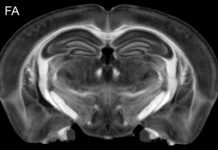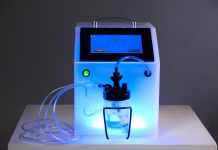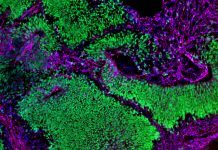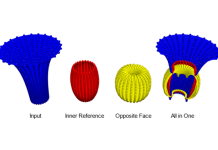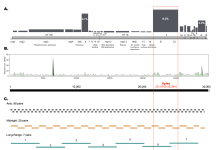Open Access Government produces compelling and informative news, publications, eBooks, and academic research articles for the public and private sector looking at health, diseases & conditions, workplace, research & innovation, digital transformation, government policy, environment, agriculture, energy, transport and more.
Home Search
en - search results
If you're not happy with the results, please do another search
3D microscopic whole brain neurodegenerative MRI
This article by G. Allan Johnson, Ph.D., focuses on advanced MRI techniques for studying neurodegenerative diseases, exploring the challenges of screening therapies for conditions like Alzheimer’s and Parkinson’s, and highlighting the promising research conducted at Duke University.
Molecular Hydrogen (H2): An effective antioxidant
H2 has a rich history dating back to its discovery in the 18th century. Research on its biological safety lagged until a 2007 study revealed its antioxidant effects, particularly its ability to neutralise harmful hydroxyl radicals. Alexander Nenov discusses H2’s potential as a tool to support overall wellbeing.
Waste-to-energy: How Europe can avoid sleepwalking into a landfill catastrophe and achieve net zero
Vanessa Fakra at Kanadevia Inova AG discusses waste-to-energy, including how Europe can avoid sleepwalking into a landfill catastrophe while achieving net zero.
Emma O’Brien – Embridge Consulting
Emma O’Brien is the Founder and CEO of award-winning people-first business transformation consultancy, Embridge Consulting
A recognised tech leader, combining commercial acumen with a deep...
Heatventors secures €4 million series A to accelerate global expansion of intelligent thermal batteries
Hungary-based energy innovator Heatventors Kft has secured €4 million in Series A funding to expand its intelligent thermal energy storage solutions globally.
Honeybee pollen may hold natural antibiotics to save hives from infection
Researchers find that honeybee pollen contains antimicrobial bacteria, offering a natural way to protect hives from infections.
NIH launches first dedicated organoid center to reduce animal testing
The NIH has established the Standardized Organoid Modeling Center, aiming to develop reproducible, human-based models using AI and robotics, reducing reliance on animal testing.
Two new carbon capture projects have launched, creating 500 clean energy jobs
Two cutting-edge carbon capture projects in North Wales and the North West of England are set to begin construction, securing 500 skilled jobs and marking a significant milestone in the UK’s clean energy transition.
Mounting water scarcity: A complex challenge requiring nuanced solutions
Addressing increasing water scarcity is a complex challenge that requires nuanced solutions, according to Peter Greve from the Climate Service Center Germany.
Energy-efficient greenhouse production for emission-free food cultivation
Michel J. Verheul discusses the advancements in energy-efficient and emission-free greenhouse production in Norway, focusing on the innovative methods developed by researchers at the Norwegian Institute of Bioeconomy Research (NIBIO).
£4.4 million boost for next-generation UK aviation technology
The UK government invests £4.4 million in innovative aviation projects, including drones, unmanned aircraft, and zero-emission technologies, supporting aerospace growth and jobs.
Max Planck Institute of Molecular Cell Biology and Genetics (MPI-CBG)
Since its inception, the Max Planck Institute of Molecular Cell Biology and Genetics (MPI-CBG) has been driven by a central scientific question: how do individual cells organise to form tissues?
The importance of palaeontology, Earth history, and science
The Society of Vertebrate Paleontology discusses the significance of paleontology, Earth history and science in this insightful opinion piece.
Julija Menise – TDi Sustainability
Julija Menise is an expert in the review and analysis of international standards and national laws and policy instruments related to human rights, labour...
UK Government announces its compulsory Digital ID scheme
The UK government has announced a new nationwide digital ID scheme that will become mandatory for Right to Work checks by the end of the current Parliament.
Ovarian phenotypes impact fertility and pregnancy outcomes
In this ovarian health focus, Adjunct Assistant Professor Zhongwei Huang, Dr. Paula Benny and Ms. Hui Wen Tam explore how ovarian phenotypes affect ovarian function and lifespan, leading to complications in pregnancy outcomes.
NASA-ISRO NISAR satellite sends back first images of Earth
The NASA-ISRO Synthetic Aperture Radar (NISAR) satellite has captured and transmitted its first images of Earth, which show the science and monitoring capabilities this mission will deliver soon.
Organic intelligence core technology (OICT) solves the core problem of AI/ML
Many businesses are growing sceptical of AI/ML because they fail to see strong returns or solid fundamentals. Inora Organic Intelligence Core Technology (OICT) changes that – built on a strong foundation, it delivers accuracy and sustainable ROI.
What can we learn from millions of viral genome sequences?
David Ussery and Pratul Agarwal, Professors in the Department of Physiological Sciences at Oklahoma State University, discuss their work using high-performance computing for the analysis of millions of viral genome sequences.
AI powered screening and triaging of large bowel endoscopic biopsies
Nasir Rajpoot, CEO and CSO of Histofy, reveals AI-powered screening and the triaging processes for large bowel endoscopic biopsies.

